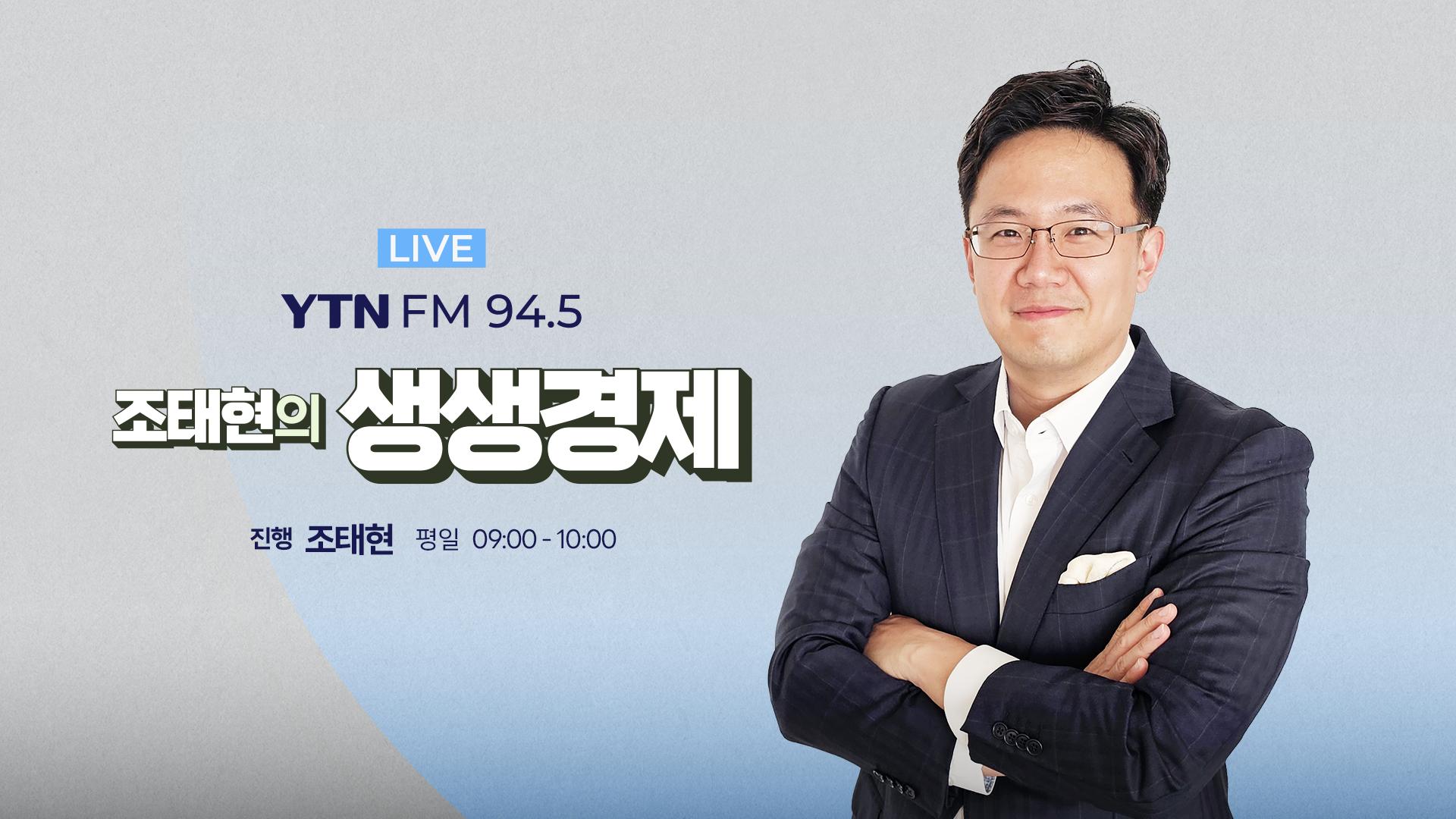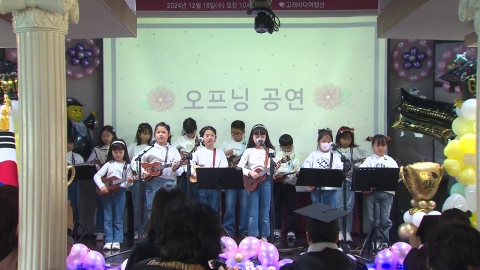■ Host: Reporter Cho Tae-hyun
■ Air date: December 20, 2024 (Friday)
■ Talk: Park Seung, former governor of the Bank of Korea (BOK)
* The text below may differ from the actual broadcast content, so please check the broadcast for more accurate information.
◆ Announcer Park Sang-yeon (hereinafter referred to as Park Sang-yeon): What do Japan and Germany have in common, which had a brilliant period of economic growth? Do you know what it is, listeners? It's going through zero growth and a long-term recession. It's not just about someone else's country. Many are worried that the growth engine of the Korean economy may be fading at a time when the two engines of export and domestic demand are at stake. We have prepared a time to ask your opinion on how to get out of the swamp of low growth in the Korean economy passing through such a dark and long tunnel. We are calling former Bank of Korea Governor Park Seung, who served as the 22nd Governor of the Bank of Korea. The president is out, right?
◇ Park Seung, former governor of the Bank of Korea (hereinafter referred to as Park Seung): Yes, how are you?
◆ Park Sang-yeon: As the situation is right now, I think I need to ask you this question first. How do you think the current impeachment situation has affected our economy?
◇ Park Seung, 22nd Governor of the Bank of Korea (hereinafter referred to as Park Seung): Our economy was already experiencing a recession. This impeachment, which appeared suddenly at this time, is having a great impact on our economy. First of all, domestic consumption is directly hit, which makes it very difficult for self-employed and small business owners. Stock prices in the stock market are now booming in the U.S. and Japan. However, Korea is the only country that continues to fall, and exports and investments are also being hit. In particular, projects that require government support, such as defense exports and oil drilling, are all losing momentum. The exchange rate has also soared. Just before this emergency, it was 1,400 won per 1,400 won, which is now soaring like this per 1,450 won, and export growth is now slowing down. Now, though, these shocks are very large right now, but I don't think they'll last long. I think that after the impeachment crisis, it will be an opportunity for our democracy to become more solid and it can be a blessing in disguise that will bring the economy back to life.
◆ Park Sang-yeon: So there are concerns about whether we are following the footsteps of Japan and Germany, and you agree on that. As for the cause, you have talked about sluggish domestic demand, and you have talked about a decline in exports and a hit on investment, but I think we can also point out a little bit about the decline in the production labor force.
◇ Park Seung: Our economic growth rate now is 5% 20 years ago and 3% 10 years ago, but it's 2% this year and 0% in 20 years, so growth stops. And even if you look at the world's GDP ranking, it was 10th in the world four years ago in 2020, but it is now 14th, and it will continue to be overtaken by Indonesia, Africa, and Nigeria in the future. This industry's competitiveness is also continuing to weaken. Traditional industries such as steel and petrochemicals have already lost their competitiveness, and the same industries such as semiconductors and automobiles are now greatly threatened, and high-tech industries such as artificial intelligence and robots are behind from the beginning. But then why are we doing this? I can roughly tell you three reasons, and the first thing I can point out is low birth rate and aging population. It is bound to go to low growth because the productive labor force decreases, and secondly, the high-cost structure of our society is blocking investment and growth. Specifically, these problems, such as high housing prices, private education expenses, strong labor unions, and various regulations, are not solved. The third and final thing to say is that we have been growing export-led, but now we have reached a stage where such export-led growth is impossible. Korea's export growth has ended since 10 years ago. Now, exports are showing a long-term trend of maintaining the status quo or decreasing, and if that happens, it will eventually grow to be centered on domestic demand, and in that case, it will eventually go to low growth.
◆ Park Sang-yeon: The economy needs to be revitalized as soon as possible, so what should we do to get out of this long-term recession and get back to growth?
◇ Park Seung: In order to prevent economic aging and revive growth vitality, there will have to be drastic structural reforms that change the economic framework. First, we need to prevent this so that we don't reduce labor productivity. In order to do this, we need to use policies to increase the domestic fertility rate and open immigration, but in Korea, I think we should pursue both now. Second, we need to lead the growth of science and technology. This is the story. This is the only way to find a breakthrough in a country where our country has no resources and its population is declining. Therefore, in high-tech industries such as artificial intelligence, semiconductors, and secondary batteries, Korea should secure the world's No. 1 absolute advantage, and to do so, the government and industry should boldly reform regulations and cooperate jointly for continuous innovation in science and technology. Finally, we need to prepare a social environment to promote investment. First of all, labor reform is urgently needed. In the United States, for example, labor flexibility is guaranteed so that if a company collapses, it can be fired if it is inevitable to live. Labor flexibility must be guaranteed so that they can be fired to open the door to new employment for young people. And for companies, the salary system should change from the current seniority system to job pay and incentives. And labor welfare should be guaranteed by government policy rather than struggle. The government must do this to ensure that labor welfare is actively guaranteed so that trade unions do not take to the streets, and finally, regulatory reform is needed. Regulatory problems are not only widespread in our industry but in our social sector as a whole. I think we need such reforms to drastically eliminate this.
◆ Park Sang-yeon: Yes, let's point it out one by one. First of all, the low birth rate and the resulting population decline are a big factor in the low growth of our economy. He told me. This may be because it will inevitably lead to a decrease in the labor force, but so far, the government has invested a huge budget to solve the problem.The situation is getting worse. How do I solve this?
◇ Park Seung: In order to prevent low growth, we need to prevent economic aging and structural reforms that change the economic framework that restores economic vitality. However, first of all, we have not been able to solve the population problem, but the population will enter a super-aged society next year where 20% of the population aged 65 or older will be. And in 20 years, the percentage will be 37%, making it the oldest country in the world. Then the working-age population decreases and eventually economic growth stops. However, the policies so far have centered on the so-called maternity promotion policy, such as one-time cash payments or maternity leave, but these policies have not been effective because the fundamental problems have not been touched. So what is the fundamental problem? This is the housing problem and the education problem. The reason why people avoid marriage and childbirth is that it is difficult to get a house right away and it is difficult to educate their children. So the housing problem is that everyone should make housing affordable, and the education problem is that we don't have the material and mental burden of educating our children. I think we have to make structural fundamental reforms to this.
◆ Park Sang-yeon: Yes, you mentioned the need for structural reform. You pointed out that the house price is too high for consumption, but I know you also said that since the house price is too high, it should be cut in half. Is this possible?
◇ Park Seung: The real estate problem is a very painful part of Korea. South Korea has put most of its household savings in real estate. That's why our country is called a 'real estate undefeated country' or a 'real estate centered country'. Oh, if we don't get out of this, we can't prevent a long-term recession in the Korean economy. Korea now has 75% of its household savings in real estate and 25% of its financial savings, but the opposite is true in the U.S. Thirty percent and 70 percent of the real estate comes from financial savings. So in our case, prices have increased 30 times and per capita income has increased 115 times over the past 50 years, but house prices have increased 3,000 times. When house prices rise, homeowners like it, but those who don't have a home and our descendants who have to buy a house for the next generation are paying for it. However, if you look at the house price in Korea now, it is twice that of advanced countries. There is a ratio between house price and income. It's called PIR, so it's called price to come ratio, so this is the value of the house divided by the median income's annual income, which is 14 for Seoul, our country. 14 means that people who live in Seoul in our country can buy a medium house only when they collect their salary without spending a penny for 14 years. But in New York or London, this is 7 to 8. So in a country like this, you can buy a house if you collect all your salary for seven or eight years. That's what it means. That's why this high house price is avoiding marriage and having children, contributing to the gap between the rich and the poor, deteriorating the quality of life, and causing low growth. Then, what to do with the house price in the future is that the house price should be reduced by half. Then, the ratio of the house price to this PIR income I mentioned earlier should be lowered to half of the present. So, the situation in New York and London, that is, we have to lower our house prices to a level similar to that of foreign developed countries. That's what it means. Then will it be possible? It is possible according to the will of the policy. First of all, in order to achieve this, income must be increased to the maximum and housing prices must be stabilized downward in the long run. So, Korea's PIR should be made like this so that you can buy a house if you collect your salary for 7 to 8 years. To do so, the government should continue to maintain the status quo of housing prices without raising housing prices or lowering them by 2 to 3 percent. Then, to make it like this, the market will have to do that, so we need to increase the supply. Therefore, even if the green belt is removed, it is necessary to induce a significant reduction in housing prices in the metropolitan area, and on the other hand, real estate ownership tax and such things must be normalized to prevent demand. Currently, real estate ownership tax in Korea is one-third of that of developed countries. This should be raised to the level of developed countries. Now, for example, in the case of Houston in the United States, here we impose education and property taxes on real estate together. So, if you own a billion won house, you will be charged 10 million won as education tax and 5 million to 15 million won as property tax, which is 1.5% of the house price, but Korea's ownership tax is less than 0.5%. And at the same time, government policy should leave this as it is, even if housing prices fall a little. But our country couldn't do that. If housing prices do not rise and stabilize downward, our people will not put their savings into real estate, of course. Then we can enter the era of long-term real estate stability.
◆ Park Sang-yeon: Yes, this improved policy seems to be clearly needed. The reason why people's lives do not improve even if the economy grows is also related to housing prices, and one of the things that distinguishes high-income and low-income countries is housing prices and the gap between the rich and the poor. Our society is in serious pain due to the polarization caused by the gap between the rich and the poor and the resulting social conflict, but I only need to live well now. This extreme selfishness prevails. How should we approach this issue?
◇ Park Seung: This gap between the rich and the poor is a very important issue in everything, whether it's a matter of people's lives or national unity. However, the gap between the rich and the poor is the income gap and the asset gap, but the asset gap is larger than the income gap. For 2022, if you look at the top 20% and bottom 20% magnification, your income is five times higher. What this means is that the income of the top 20% of people with high incomes is five times higher than the income of the bottom 20% of people with low incomes. This means that there is such a gap, and this gap is 250 times for real estate. So, in the case of real estate, the top, or some people with a lot of real estate, make up almost all of the total real estate, which is a big problem in the gap between the rich and the poor in Korea. So in the end, to reduce this, you have to equalize the house, so you have to have the house evenly, and then the house price is cheap. And then one of the sources of the gap between the rich and the poor is education. So education serves as a ladder for the low-income class to rise to the high-income class. In that sense, this education is important. So, in order to achieve this, there needs to be socialization of education. The socialization of education is the state's responsibility for all educational expenses. For example, in countries like Germany, Sweden and Denmark, the government is responsible for all people's education according to their ability, not according to their wealth, and so on. In this regard, in Korea, universities should not only allow rich people to go, but should allow rich people or poor people to go, and to do so, the government should pay for the entire tuition of college education right away, starting with low-income children. That's what I think.
◆ Park Sang-yeon: Yes.
◇ Park Seung: Next, we need to change our tax policy to solve this polarization problem. Tax policy includes VAT, which is a consumption tax, which is a regressive tax. Reverse tax is a tax that has a higher burden rate on the poor. And property tax is a tax that is heavily borne by wealthy people, and Korea is a consumption tax value-added tax system. That's why the poorer the person, the more tax they pay. I think we need to move this to a tax system centered on taxation imposed on real estate, stocks, and cryptocurrencies.
◆ Park Sang-yeon: Well, in fact, there needs to be fundamental structural reform to solve all the problems right now. In order to do so, it seems important to come up with measures both ruling and opposition parties. In many ways, it doesn't seem easy, but there is another scary variable. I think it's the Trump administration that came back after eight years. The world is in a state of tension because it forewarned stronger regulations and tariffs than the first period. How do you think the Trump administration's policies will affect the Korean economy?
◇ Park Seung: Trump's policy can be represented as America-first and protectionist. So Trump said he would impose a 10% general tariff on all countries externally and a 60% high tariff on China, while abolishing subsidies related to semiconductors and electric vehicles and actively cracking down on illegal immigration, and internally lowering corporate and income taxes. I'm making a promise like this. Oh, if you impose tariffs like this, it becomes inflation. So there's going to be inflation in the U.S. And the fiscal deficit will grow because of the tax cut policy. So when inflation and the fiscal deficit get bigger, the United States has no choice but to issue more government bonds, and the market interest rate rises, which triggers a strong dollar, and for Korea, the exchange rate goes up, and when the exchange rate goes up, the stock market will stagnate. So overall, the effect on Korea is that both exports to the United States and exports to China will decrease. And Korea's semiconductor and secondary battery industries will be hit. And I think the inflation caused by the high exchange rate, the rise of Korea's prices, and the stock market downturn will act as a limiting factor for Korea's economic growth as a whole.
◆ Park Sang-yeon: Yes, it seems that the Korean economy is also facing a considerable challenge. The president pointed out the problem of our economy in various ways today. Lastly, if you could predict what our economy will look like ahead of the new year.
◇ Park Seung: This year's growth rate is mainly due to exports, but this year's growth rate is a little higher because exports of automobiles and semiconductors are going up about 9% this year from last year due to good exports of automobiles and semiconductors. However, the economy in the new year will be more difficult overall than last year. Domestic demand is also high, so it is difficult to expect a recovery in domestic demand. However, prices will be stable. Overall, the Bank of Korea expects consumer prices to rise by 1.7 percent, which could put the economy on a shaky ground in the new year and, in some cases, be concerned about deflation amid price stability. That's what I think.
◆ Park Sang-yeon: I hope your economy regains its vitality as soon as possible. That's all I have to say today, Mr. President. Thank you for your comment. Thank you. I talked to former Bank of Korea Governor Park Seung.
#Park Seung #Bank of Korea #President #Impeachment #EconomicGrowth #LowGrowth #LowGrowth #Aging #Export-ledGrowth #GrowthDriven #Real Estate #Immigration #EducationSpending #Greenbelt #TheRichTax #Tax #Inflation #HighExchangeRate #DomesticIncome
[Copyright holder (c) YTN Unauthorized reproduction, redistribution and use of AI data prohibited]
Economy
More- The rising exchange rate has deepened the public's anxiety...Concerns over cooling consumption
- KOSPI at 2,400 on 'foreign selling'...KOSDAQ 670 Collapse
- Lee Bok-hyun said, "Next year, end-users and household loans in non-metropolitan areas will be facilitated."
- KOSPI at 2,400 on 'foreign selling'...KOSDAQ 670 Collapse


![[Weather] The temperature after the "snow bomb" until the morning...Seoul Experience -12℃](https://image.ytn.co.kr/general/jpg/2024/1221/202412210108154850_h.jpg)



![[Y Review] "Bogota" without Woollim...Only Song Joong Ki's transformation and exotic scenery shine.](https://image.ytn.co.kr/general/jpg/2024/1220/202412201628290103_h.jpg)



